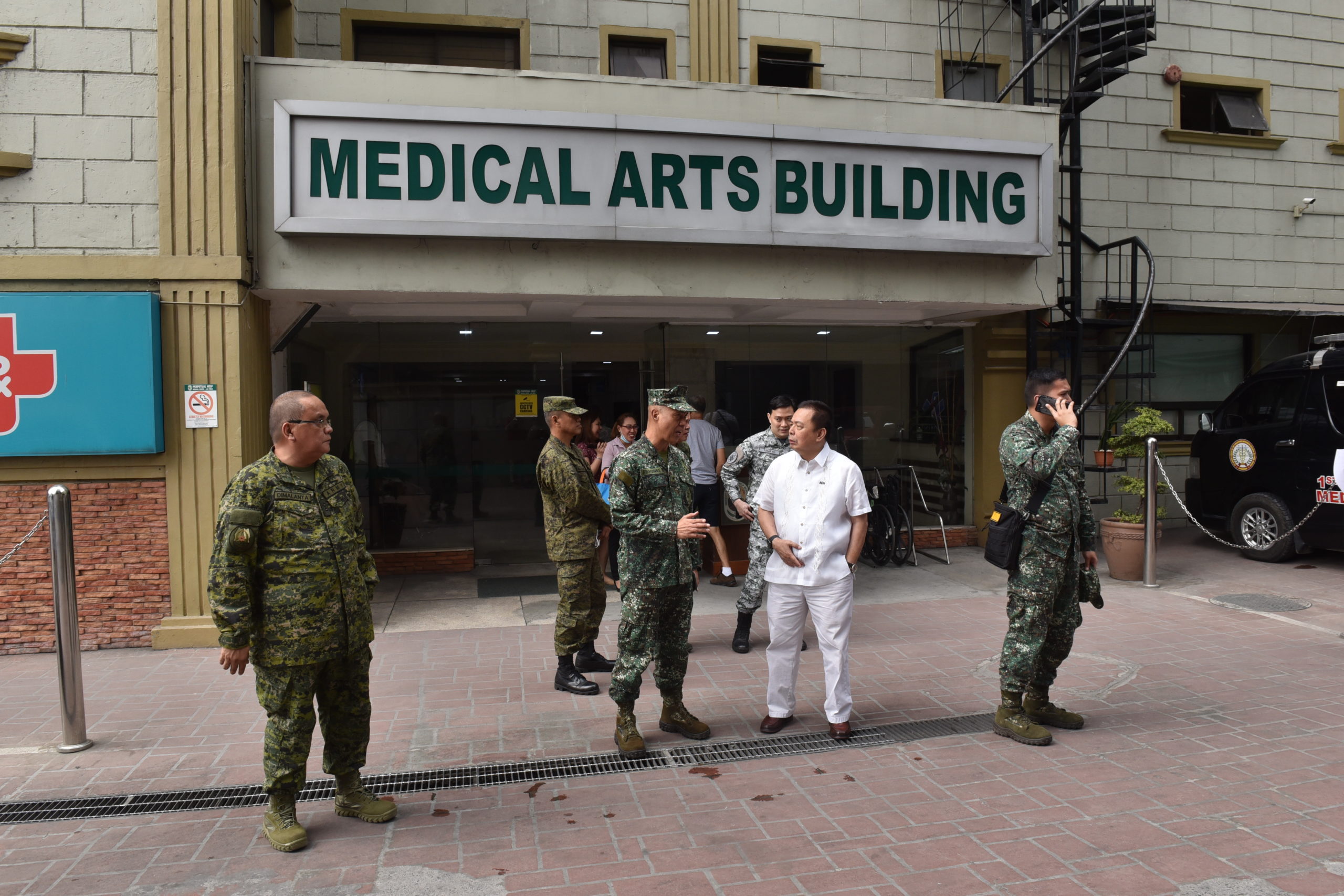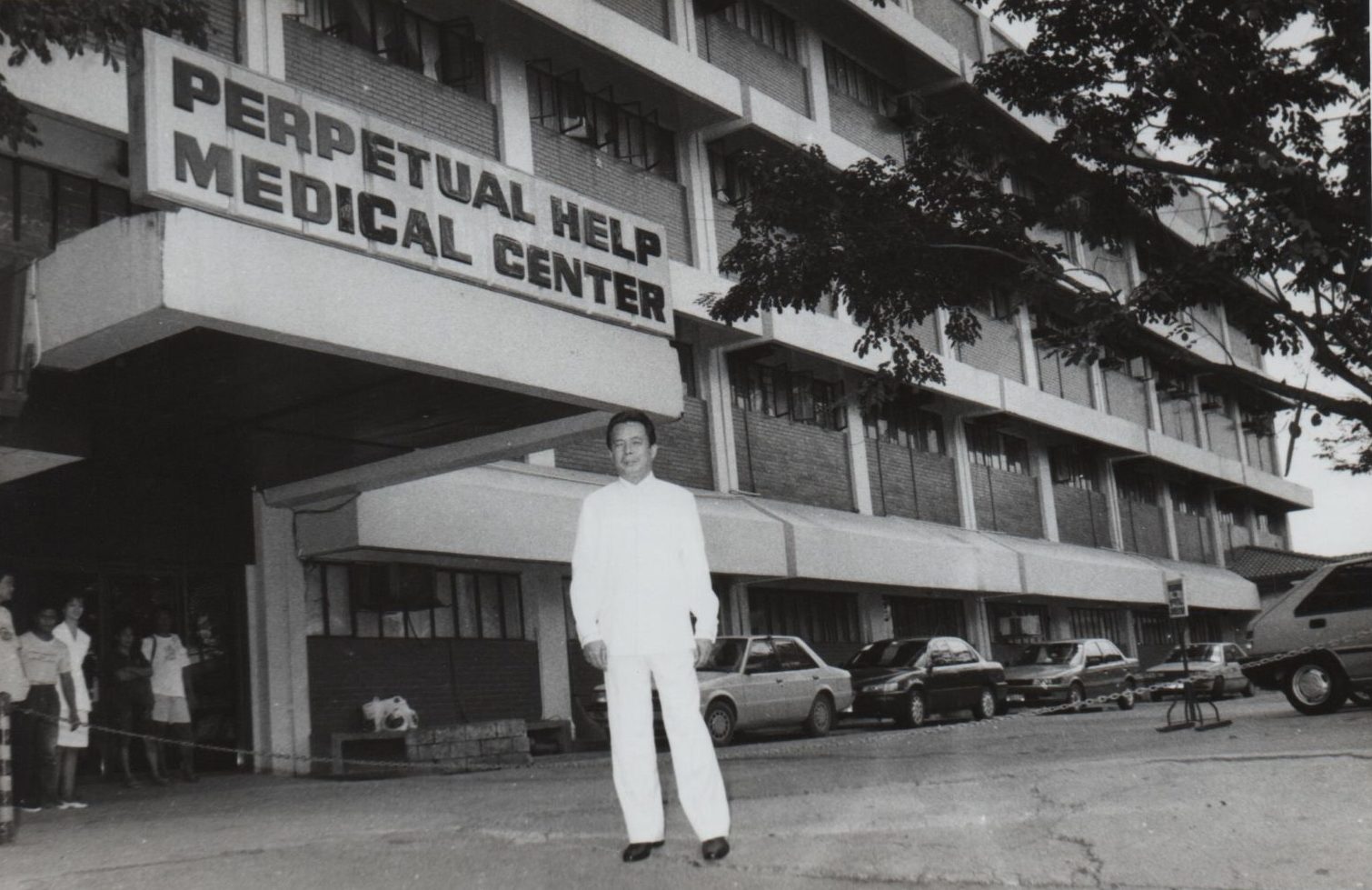Hospital owner grapples with COVID-19
It’s a case of a physician having a hard time healing himself.
Like many businesses, hospitals are struggling to make ends meet during the new coronavirus (COVID-19) pandemic. Just ask Antonio Tamayo, owner and chair of the Perpetual Help Medical Center in Las Piñas.
“People might think hospitals are raking it in during a widespread medical situation like this pandemic. Sadly, they are wrong,” he lamented.
Tamayo revealed that his hospital’s occupancy rate has fallen below the halfway point since the pandemic began.
“Occupancy is low because of COVID, even non-COVID sick patients are afraid to go to the hospital for fear of contamination. Also, the doctors attending to non-COVID patients don’t know if a patient is infected or not.”
These days, non-COVID emergency patients are the most common patients being admitted, he said.
Article continues after this advertisementProblems with PhilHealth
Compounding the problems of Tamayo’s hospital is the issue of the delay in Philippine Health Insurance Corp. (PhilHealth) reimbursements.
Article continues after this advertisement“This delay is really exerting a lot of pressure on hospital administrators. The government, particularly PhilHealth, should focus on clearing these backlogs. If these problems persist, we might see a collapse of the country’s health system.”
Tamayo issued the call as he fights to sustain the life of his hospital.
“Even before COVID, it takes 120 days before we are reimbursed by PhilHealth. But our suppliers give us 30 to 60 days to settle accounts. The funds from PhilHealth can help us a lot in keeping the hospital open so we can continue serving our patients who are mostly the working force of the country,” he said.
To keep his hospital alive, Tamayo had to make some hard decisions.
“We had to reduce manpower, implement shifts and of course retrenchments,” Tamayo said. The work force on a “work from home” setups was reduced by about half.
He is also talking intently with creditors, appealing to them to extend the terms of their debt restructuring. “This is how we survive and match our earnings with costs.”
Genesis
In 1952, Tamayo’s parents Drs. Jose and Josefina Tamayo opened the Perpetual Help Clinic in Sampaloc, Manila. In 1976, Tamayo opened the Perpetual Help Medical Center in Las Piñas with other branches opening in Biñan and Pangasinan.
Tamayo also founded the University of Perpetual Help System with campuses in Las Piñas, Laguna and Cavite.
“I joke that I am not a doctor, but I own a hospital. I am not an educator but I own a university,” Tamayo chuckled.
Through grit and determination, Tamayo made Perpetual Help one of the best hospitals south of Metro Manila, capable of competing with the bigger ones in the area. Its cardiovascular center just got its second state-of-the-art catheterization laboratory system (cathlab) which allows doctors to see into the hearts of their patients more clearly. The hospital’s Radiation Oncology Center and PET/Scan Center boasts of advanced equipment and machinery. And its Women’s Healthcare and Diagnostic Center focuses on treating breast cancer.
Through the years, Tamayo has had to weather many financial ups and downs like Martial Law, the recovery after the 1986 Edsa People Power Revolution, the 1997 Asian financial crisis and 2008 global financial crisis. He believes he and his group will weather the current pandemic. And Tamayo sees every crisis as an opportunity.
“This is the time to look at the quality of our health care. It’s an opportunity to evaluate and review our manpower, training and policies. It’s also time to fix and tune our equipment and undertake some improvements to the physical structure,” he said.
Tamayo has turned 75, but it seems he has no plans of slowing down. The current COVID crisis has afforded him the chance to take a long hard look at the business with an eye on “post-COVID” times.
“The pandemic has afforded us the time to do a lot of macro planning for the short and long-term,” he said.
But an important key to this is the resolution of the problems with PhilHealth. He estimates that the agency manages to help the country’s health care at just 15 to 20 percent of full capacity. “I think this could and should go up to 50 percent so we can provide relief to the poor.”
“Health care is one of the most important elements of life and a cornerstone to a nation’s progress. A hospital is one of the primary modes to deliver health care. We have clients who are the have and have nots, the rich and the poor. And if you are sick, you are not productive, the economy suffers,” he said. —CONTRIBUTED


